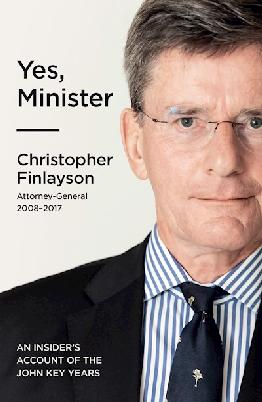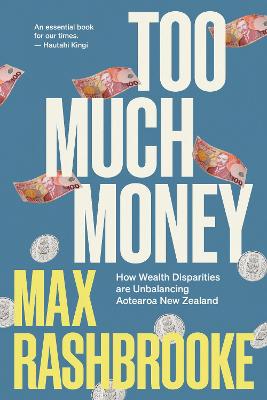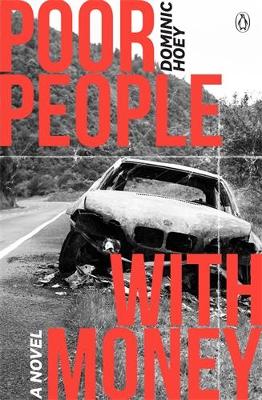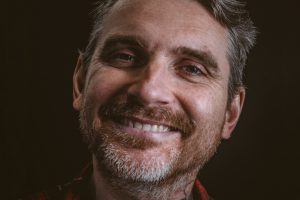Money may indeed talk when former National Party cabinet minister Chris Finlayson, inequalities researcher Max Rashbrooke, and writer Dominic Hoey speak at WORD events in Christchurch early next month.
Chris Finlayson has released Yes, Minister: An Insider’s Account of the John Key Years, his political memoir, and speaks at The Piano in central Christchurch on 4 September in a session titled Chris Finlayson: The inner circle. An unabashed fan of ex-British leader Margaret Thatcher and late United States President Ronald Reagan, Finlayson presents an account of his life as MP and cabinet minister in the John Key-led government. It is by turns sober, he was Attorney General 2008-2017, and lively, his opponents cop some barbed criticism.
From quite a different position on the political spectrum Max Rashbrooke outlines the damage that increasing inequality is wreaking on New Zealand society in his book, Too Much Money: How Wealth Disparities are Unbalancing Aotearoa New Zealand. He tracks the origins of inequality and points the finger at privilege, the Employment Contracts Act and unaffordable housing amongst the main causes of the widening wealth divide in Aotearoa.
In his novel, Poor People with Money, Dominic Hoey presents a vibrant depiction of life at the margins but resists the temptation to “wallow” or “preach” according to Listener reviewer Sam Finnemore. Hoey and Rashbrooke speak at The Piano on 3 September at Inside the wealth gap: Stories and stats.
Finlayson and "the rule of law"
Finlayson reflects on his political career in Yes, Minister and sometimes surprises with who he praises and who he lashes. For someone who was a cabinet minister 2008-2017 it was no surprise that he rated then Prime Minister John Key and Finance Minister Bill English highly but maverick National MP Maurice Williamson also got a good rap for his tireless advocacy of broadband installation. Finlayson pointed out the improved Internet service many Kiwis enjoyed as a result enabled many to keep working during the Covid-19 lockdowns.
Finlayson comments on the "dedication" of former Christchurch Rebuild Minister Gerry Brownlee and by his own admission struggled to understand how the high-profile minister lost the Ilam seat, long regarded as a National stronghold, at the last election. Some clues were in the Royal Commission report into the Earthquake Commission (EQC) which highlighted the substandard nature of many home repairs to earthquake-damaged homes. At the time of release the report was rejected by Brownlee.
Important to Finlayson memoir is “the rule of law”. He is a lawyer by trade, and he advocates making legislation accessible by simplifying it and putting laws and regulations online but he is relatively silent on “important social issues” which he sees as being outside his competency. This might explain why Yes, Minister devotes little to New Zealand’s housing crisis which National denied for a significant part of Finlayson’s career as a Cabinet minister and raises the question: Were “important social issues” a blind spot for too many Nats seated around the Cabinet table during the John Key years?
For a politician and veteran cabinet minister happy to discuss “rule of law” but declining to comment on “important social issues” is akin to a mechanic expressing confidence about overhauling an engine but refusing to look at a fault in a car’s steering column.
Rashbrooke and inequality
Rashbrooke’s focus on inequality in Too Much Money brings to light social issues affecting the lives of many voters, one being home ownership and another low wages. He delves into the history of the haves and have nots and finds that since the 1980s, the gulf between the two has grown considerably (between 1985 and 2005 income inequality grew more rapidly in New Zealand than any other developed nation) and a growing number of workers find themselves in the have nots.
Rashbrooke also tracks the impacts of an uneven education system where some schools benefit from wealthy parents relocating in order to enrol children in their schools of choice and build networks of opportunity with other privileged families. This conveyor belt of opportunity has some surprising long-term effects including that our parliament has become less representative of labourers than it was in the 1970s.
Too Much Money is not without solutions and quotes Hugh Fletcher, former chief executive of Fletcher Challenge, who suggests a more “aggressive” approach to housing and health issues and a land tax to address an “enormous vicious cycle” driven by “disparities in financial wealth”.
Both Finlayson and Rashbrooke are concerned about education and the opportunities it offers. Finlayson welcomes the teaching of more New Zealand history provided it is balanced and Rashbrooke argues that ensuring all schools are well resourced gives all children a better shot at life.
A better shot at life: something that might inspire Hoey (whose storytelling is rated as tough and true by Finnemore) to construct another novel that tracks the opportunities offered to the people of Aotearoa.
Further reading
- More books by Chris Finlayson
- More books by Max Rashbrooke
- More books by Dominic Hoey
- Books on New Zealand politics
More WORD Christchurch
- Visit our page of WORD 2022 Festival coverage and info
- Visit the WORD Christchurch website
- Follow @WORDChCh on Twitter
- Follow WORDchch on Instagram
- Like WORD Christchurch on Facebook
- Listen to WORD Christchurch podcasts








Add a comment to: Administering the cure to Aotearoa’s ailments… but which cure is the tonic we all need?